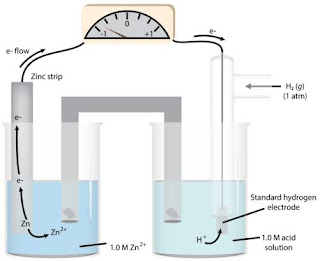What is Chemistry? And there branches
What is Chemistry?
Chemistry is a subdiscipline of science that manages the investigation of issue and the substances that comprise it. It additionally manages the properties of these substances and the responses gone through by them to frame new substances. Chemistry principally centers around particles, particles, and atoms which, thusly, make up components and mixes. These substance species will in general communicate with one another through synthetic securities. Note that the associations among issue and energy are additionally concentrated in the field of chemistry.
Connection Between Chemistry and Other Branches of Science
'Science' can be characterized as the orderly investigation of the normal universe, its structure, and all that it includes. Because of the tremendousness of the characteristic universe, science has been partitioned into a few trains that manage certain parts of the universe. The three essential subcategories of science under which these controls can be assembled are:
The Formal Sciences: Involves the investigation of the language trains that worry formal frameworks. Instances of logical controls that fall under this classification incorporate rationale and science. Can be considered as the "language of science".
The Natural Sciences: Involves the investigation of regular marvels through analyses and perceptions. Chemistry, physical science, and science fall under this class of science.
The Social Sciences: Involves the investigation of human social orders and the connections between the people that abide in these social orders. Instances of logical orders that fall under this class incorporate brain science, humanism, and financial aspects.
At the point when the connections between the significant parts of science are thought of, chemistry is found to lie near the middle (as represented beneath).
Connection Between Chemistry and Other Branches of Science
Consequently, chemistry can be seen as a focal science whose roots drill into a few different subdisciplines of science.
Parts of Chemistry
The five essential parts of chemistry are actual chemistry, natural chemistry, inorganic chemistry, diagnostic chemistry, and biochemistry. Follow the catches gave underneath to become familiar with every individual branch.
Natural Chemistry
Natural Chemistry
Inorganic Chemistry
Inorganic Chemistry
Actual Chemistry
Actual Chemistry
Bio Chemistry
Biochemistry
Diagnostic Chemistry
Diagnostic Chemistry
Substance Reactions
Chemistry Reactions
Aside from these essential branches, there exist a few particular fields of chemistry that manage cross-disciplinary issues. Whatever models incorporate restorative chemistry, neurochemistry, materials chemistry, atomic chemistry, natural chemistry, polymer chemistry, and thermochemistry.
Instances of Chemistry in Our Daily Lives
Substance responses are continually occurring around us. The human body encourages a large number of compound responses consistently. From the processing of food to the development of muscles – all substantial activities include compound responses. A couple of different instances of chemistry in the everyday existences of people are recorded underneath.
The cycle of photosynthesis that empowers plants to change over water, daylight, and carbon dioxide into glucose and oxygen is a synthetic response. This cycle is the establishment whereupon the whole natural way of life is manufactured.
Cleansers and cleansers that are utilized for cleanliness work utilizing a substance cycle known as emulsification. Moreover, they are created utilizing a substance cycle known as saponification.
Indeed, even the sunscreen utilized by people to shield themselves from the destructive UV-An and UV-B radiation of the sun depends on chemistry. These salves and creams comprise of a blend of inorganic and natural mixes that either channel or square the approaching bright radiation.
Follow the connection to get familiar with the significance of chemistry in regular day to day existence.


Comments
Post a Comment